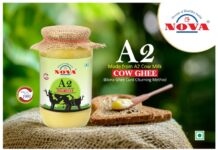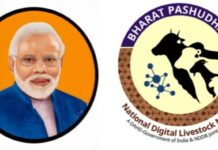New Delhi, July 27, 2020: The dairy industry is struggling to extract revenue from its value-added products such as ice-creams, flavoured milk, cheeses and flavoured yogurt, which account for more than 30% of the industry’s revenue. A Crisil Ratings report expects this category to register a 2-3% degrowth in 2020-21, due to the pandemic.
As per Euromonitor International, the ice-cream industry was worth about $2,233 million in 2019, and the flavoured milk segment generated sales worth $503.2 million in the same year. Having lost revenue in these two categories, dairy brands are trying to rake in sales by riding on the ‘immunity booster’ bandwagon.
Healthy flavours
“About 20% of the value-added products business can be attributed to sales at hotels, QSRs and to-go purchases. This segment has been heavily impacted due to eateries, cafeterias, food courts, etc, being shut since the last four months,” says Rajat Wahi, partner, Deloitte India.
Sanjay Sharma, business head, value added dairy products, Mother Dairy, says, nearly 80% of the sales of flavoured milk products comes from on-the-go purchases. “This was completely washed out during the first few months of the lockdown.”
Amul and Mother Dairy are now catering to the current demand for products that claim to protect people against Covid-19. For instance, Amul has launched Amul Haldi Doodh, Ginger Doodh and Tulsi Doodh in cans. Mother Dairy has launched turmeric milk, available in butterscotch flavour, in glass bottles according to the reports published in financialexpress.com.
In the absence of on-the-go consumption, these companies have the uphill task of convincing consumers to buy these products that can easily be made at home. RS Sodhi, MD, Amul, hopes that the convenience factor will attract consumers to buy and try them.
Mother Dairy has placed its products in hospital cafeterias to directly target people who could be looking for these products. Sharma says that the company had been working on the formulation of a turmeric-flavoured product for a while, in an attempt to commercialise the home remedy. “This is why we added the butterscotch flavour to the turmeric milk, and positioned the product as a drink for children.”
Melting market
The summer months are crucial for the ice-cream market, and nearly 60% of ice-cream sales take place during this peak demand season. This market, too, was hit hard. Analysts say that smaller dairy companies making ice-creams have been affected more due to logistical issues of manufacturing, supply chain hurdles, etc.
Amul plans to introduce ice-creams with ‘immunity booster flavours’. Despite ice-creams and flavoured milk products being typically associated with less healthy attributes and flavours such as chocolate and strawberry, Sodhi says that these products “have been received well in markets like Delhi, Ahmedabad and Mumbai”.
Analysts believe research and development by other companies could be underway to launch similar products. Sameer Shukla, west market leader, Nielsen South Asia, says, “The demand for immunity boosting products may last for longer than one quarter.” He expects greater investments in these products in the near future.
The dairy industry also faces the challenge of inventory build-up, as a result of unsold products that companies are having to write off or destroy. As per the Crisil report, the decline in sales of milk has put further pressure on dairy companies’ working capital, as they have had to convert the excess milk into skimmed milk powder.
Wahi says that while the expectation is that the dip in sales this quarter could be as high as 25%, the hope is that some of the loss will be made up in the next two quarters for value-added products, except ice-creams as it is a seasonal business.



















![Poolani Milk Cooperative Society [PMCS] well-established and fastest-growing in the Dairy Sectorof RuralKerala](http://thedairytimes.com/wp-content/uploads/2024/04/1-218x150.jpg)









![Poolani Milk Cooperative Society [PMCS] well-established and fastest-growing in the Dairy Sectorof RuralKerala](http://thedairytimes.com/wp-content/uploads/2024/04/1-100x70.jpg)